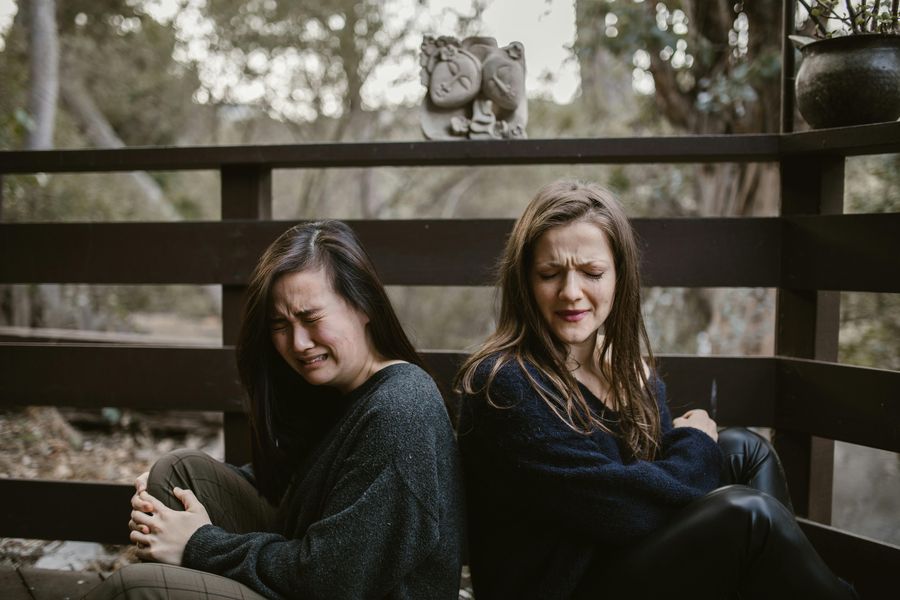Marriage Counseling vs. Couples Therapy: Understanding the Differences
Relationships take effort and work, and sometimes it can be difficult to see eye-to-eye on things.
Disagreements, financial stresses, and other life challenges can put a strain on even the strongest relationships. But when should you seek help?
And what kind of help is right for you and your partner? In this article, we’ll explore the differences between marriage counseling and couples therapy, what each approach involves, and how you can benefit from seeking out either option.
Marriage Counseling vs. Couples Therapy
Marriage counseling and couples therapy are two common approaches to improving a relationship.
While they may sound similar, they have different objectives and approaches. Marriage counseling is typically short-term and focuses on getting the relationship back on track.
The goal is to teach couples how to effectively communicate, build trust, and learn to compromise. Couples therapy, on the other hand, is more in-depth and is aimed at exploring the root causes of issues within the relationship, often related to individual issues rather than just relationship difficulties.
Goals and Focus
1. Marriage Counseling
Marriage counseling is ideal for couples who are experiencing challenges but are still committed to their relationship. The focus is on getting the relationship back on track by addressing the specific challenges at hand.
Marriage counseling sessions may include communication exercises, learning how to rebuild trust, and rekindling the romance in your relationship.
2. Couples Therapy
Couples therapy, on the other hand, is ideal for couples who are experiencing deeper relationship issues that are often tied to individual problems.
The goal is to find the root cause of problems rather than just addressing the symptoms. Couples therapy may involve addressing issues such as childhood trauma, addiction, mental health challenges, or other personal issues.
Duration and Effectiveness
1. Marriage Counseling
Marriage counseling is typically short-term and designed to help couples cope with stress and get back on track relatively quickly. Many couples find that they are able to effectively address the challenges they are facing and move forward in just a few sessions.
2. Couples Therapy
Couples therapy, on the other hand, can be more time-consuming and often requires more sessions to see results. While the focus is on getting to the root of the problems rather than just solving surface-level issues, couples can expect to make progress over time, with a commitment to long-term therapy.
Acceptance and Stigma Around Couples Therapy
Couples therapy is still often viewed as a last resort option by some couples. However, research has shown that couples who seek counseling early on, before their problems become insurmountable, are more likely to see positive outcomes.
Despite the stigma around seeking help, couples therapy can be a valuable and effective option for addressing deeper relationship issues.
What Marriage Counseling Involves
Purpose and Objective
The purpose of marriage counseling is to provide couples with the tools they need to handle challenges and differences in a healthy way. The objective is to help couples learn to communicate effectively, learn to compromise, and strengthen the relationship.
Role of Communication
Communication is a key aspect of marriage counseling. Marriage counselors will often provide couples with exercises and techniques that help them develop better communication skills.
These techniques may include active listening, speaking openly and honestly, and finding ways to express themselves without resorting to aggression.
Examples of Relationship Rules
In marriage counseling, couples will often establish rules or guidelines that help them maintain a healthy relationship. These rules may include respecting each other’s privacy, finding a healthy work-life balance, and showing mutual respect in all interactions.
Role of Marriage Counselor
The role of a marriage counselor is to act as a mediator and guide the couple towards a better relationship. They may help couples establish boundaries, set goals for the relationship, and find ways to build stronger communication skills.
Marriage counselors are licensed professionals who are trained to help couples navigate relationship challenges and optimize their communication.
What Couples Therapy Involves: An In-Depth Look
Purpose and Objective of Couples Therapy
The purpose of couples therapy is to help couples find the root cause of relationship issues and address them head-on. Couples therapy aims to identify individual problems that may be affecting the relationship, including mental health issues, past traumas, or other personal issues.
The objective of couples therapy is to work with the couple to identify specific areas of the relationship that need work, create objectives for treatment, and work towards finding solutions that enable the couple to move forward in a healthy way.
Examples of Issues Addressed in Couples Therapy
Couples therapy may address a wide range of issues related to mental health and the relationship. Sometimes, the couple seeks therapy due to an illness or condition, and therapy may be an effective supplement or alternative to medication.
For example, couples may seek therapy to address depression, anxiety, or bipolar disorder. Often, couples seek therapy to address compatibility issues, and may need advice around how to communicate and navigate their differences.
Additionally, couples therapy may be a great resource for couples seeking help with decision-making around bigger life issues, such as career changes or whether or not to start a family.
Organized Process of Couples Therapy
Couples therapy generally involves four steps to treatment: identifying the problem, intervention, identifying objectives, and finding solutions.
- Identifying the problem: During the initial phase of treatment, couples will focus on identifying the specific area of the relationship that needs work.
- Intervention: Once the problem area has been identified, the intervention phase begins. This may involve learning new communication skills, exploring the root cause of relationship problems, or developing a custom solution.
- Identifying objectives: In the objectives phase, specific, measurable goals for treatment are established.
- Finding solutions: Finally, the solution phase begins, where couples work together to find solutions that enable them to build a healthier relationship. This may involve finding new ways to communicate, learning new coping mechanisms, or seeking additional support with mental health professionals.
Role of the Therapist
Couples therapy is typically provided by licensed mental health professionals who specialize in providing therapy services to couples. The role of the therapist is to create a safe and supportive environment where couples can explore their relationship issues honestly and openly.
Therapists may be trained in specific areas of mental health and can provide referrals to psychiatrists, psychologists, or other mental health professionals as needed. They may also serve as advocates for their clients, helping them navigate insurance coverage or other barriers to accessing mental health services.
Cost and Availability of Marriage Counseling and Couples Therapy
As with any form of therapy, the cost of marriage counseling and couples therapy varies depending on the location, the provider, and the duration of treatment. The average cost of marriage counseling is usually between $45 and $200 per session, while couples therapy averages between $70 and $200 per session.
Many insurance policies do offer coverage for therapy services, but coverage may be limited based on the therapist’s credentials and the specific mental health condition being treated.
Finding a marriage counselor or couples therapist can sometimes be challenging, but there are resources available for couples seeking help.
- Referrals from a primary care physician, friends, or family members can be a good starting point.
- Online therapist directories can also be helpful.
- If you have health insurance, you may be able to find a provider in-network on your insurer’s website.
- If you are a military family, Tricare may cover the costs of counseling for specific mental health conditions, as long as you have a referral from a primary care physician.
Similarities between Marriage Counseling and Couples Therapy: Recognizing Underlying Issues and Resolving Conflicts
Marriage counseling and couples therapy are two approaches to improving relationships, and while they have differences in approach and focus, there are similarities between them.
Common Goal of Relationship Improvement
One of the primary similarities between marriage counseling and couples therapy is the shared goal of improving relationships. Both approaches recognize that there are underlying issues affecting the relationship, and both aim to address those issues to create a healthier, happier relationship.
By working through their difficulties, couples can learn to communicate more effectively and develop deeper mutual understanding, ultimately creating stronger bonds.
Comparison of Marriage Counseling and Couples Therapy
While marriage counseling and couples therapy have commonalities, it is important to note that they are not exactly the same, and there are differences in their approach to improving relationships.
- Marriage counseling typically focuses on addressing specific relationship issues, such as communication problems, trust issues, or difficulties in developing an emotional connection. The approach to marriage counseling is typically more short-term, with the goal of getting the relationship back on track quickly. This can involve learning to express oneself more effectively, learning to listen more intently, and working on techniques for healthy conflict resolution. The counselor often serves as a mediator to facilitate productive communication and create a supportive environment for couples.
- Couples therapy takes a broader approach to problem-solving and tends to be more long-term in nature. In couples therapy, the goal is to explore the root cause of relationship problems, which can often be related to individual issues within the partners themselves. A skilled therapist will help uncover deep-seated issues and work with partners to overcome them in order to create a stronger, healthier relationship. This may involve working on individual mental health issues, developing new skills for coping with stress and difficult decisions, or improving communication within the relationship. Couples therapists may involve other mental health professionals as needed to address these deeper challenges. Moreover, the style of therapy in marriage counseling and couples therapy may differ. While both may involve a form of talk therapy, couples therapy may incorporate a more analytical approach, including assessments and evaluations, to identify individual problems that may be influencing the relationship. Many couples therapy models incorporate both individual and group sessions, where couples can hone communication skills, identify and resolve conflicts, and learn effective coping strategies to strengthen the bond between partners.
In Conclusion
Marriage counseling and couples therapy share a common goal of improving relationships, but they employ different approaches to addressing the specific challenges couples face. Marriage counseling focuses on specific relationship issues, while couples therapy explores deeper issues related to individual problems, mental health, and broader challenges.
Ultimately, the decision between choosing marriage counseling or couples therapy should be based on your specific needs and goals. Seeking support in improving your relationship can ultimately lead to greater happiness and fulfillment both individually and as a couple.
In conclusion, seeking help is a proactive step towards building a stronger, healthier relationship. Whether choosing marriage counseling or couples therapy, the goal of both approaches is to create deeper mutual understanding, effective communication, and resolution of issues.
Marriage counseling primarily deals with solving specific relationship-related issues, while couples therapy looks into identifying deep-seated issues and working on them for a stronger, healthier relationship. In both options, the role of the therapist is to help couples navigate difficult conversations and provide guidance where required.
Though the cost may vary depending on insurance policies and therapists, seeking help early on before the problems become insurmountable increases the chances of positive outcomes. Ultimately, the purpose of both options is to help couples build long-term, healthy relationships with mutual respect, trust, and understanding.



